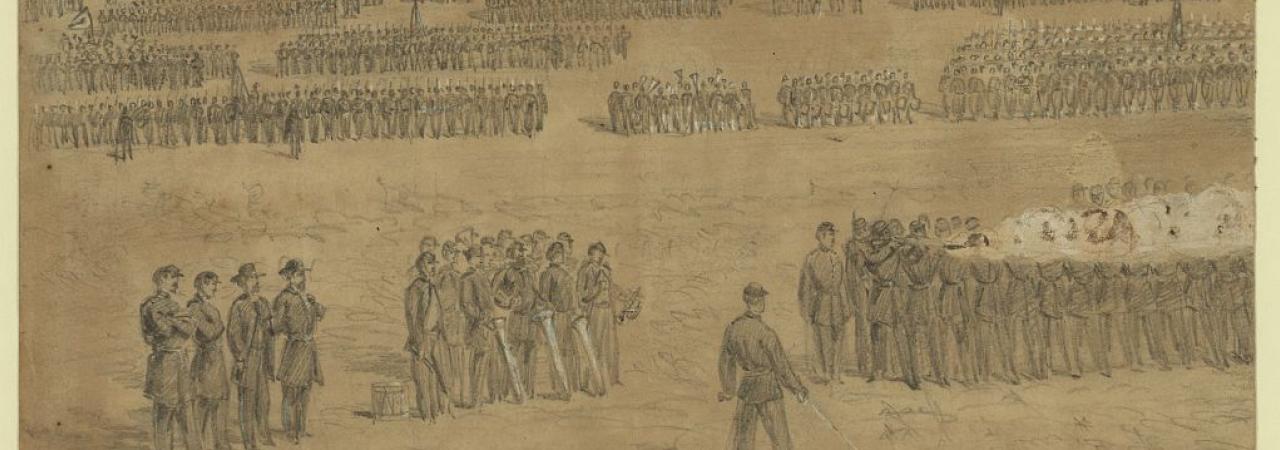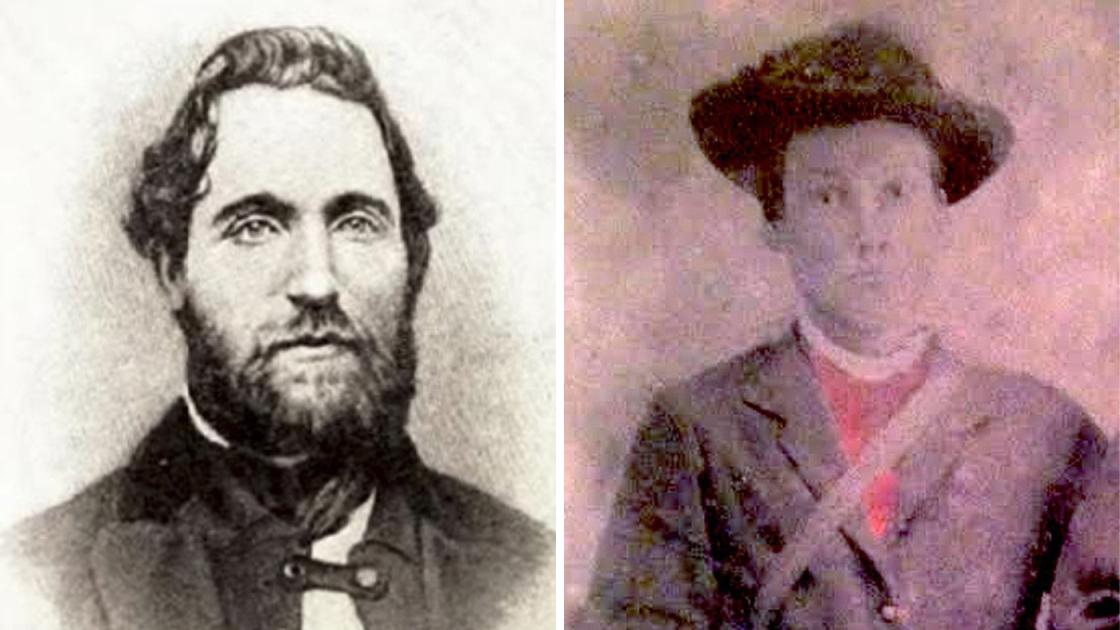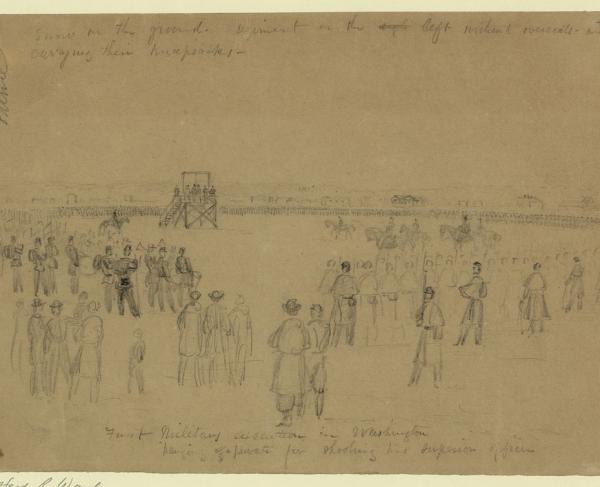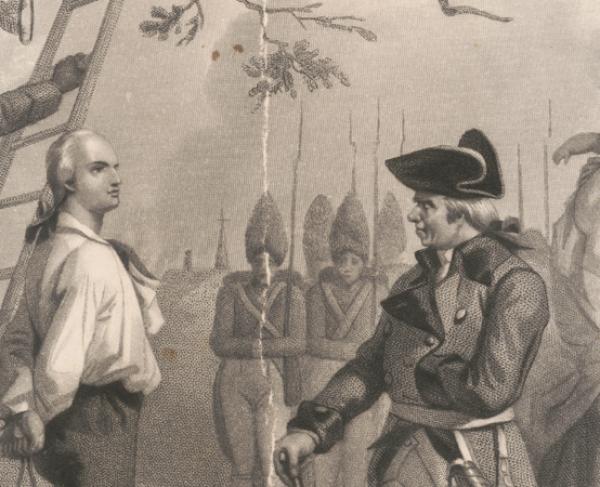
During the American Civil War, both the Union and the Confederate governments relied on espionage during wartime. Both citizens and soldiers participated in providing information, including military and political details and secrets. If caught, the spy faced punishments such as jail or death by hanging. Although most spies were civilians and met jail time, many were court-marshaled and faced death. Soldiers like Sam Davis and citizens like Timothy Webster died for their cause and were seen as heroes for their respective sides.

Throughout the rest of the war solders and citizens alike faced the gallows when accused as spies. Union citizen Timothy Webster was the first spy executed during the American Civil War. Born in England, Webster immigrated to Princeton, New Jersey during the 1830s. While living in New Jersey, Webster worked as a machinist and later a police officer in New York. New York police captain and detective Allen Pinkerton hired Webster to join the detective unit of the New York Police Department. He quickly rose through the ranks and became one of the best detectives on the force, even preventing the first assassination attempt against president-elect Abraham Lincoln in 1861. When the Civil War began, George McClellan hired the Pinkerton detectives as spies for the Union.
Webster was assigned to the southwest in Tennessee and Arkansas to receive information regarding Confederate troop movement and planned attacks. He quickly befriended Confederate officers who gave him tours of defenses and other strategic areas. To keep his cover, Webster fled Mississippi by train to Cincinnati to relay substantial amounts of information to Allen Pinkerton, to distribute to Union commanders. Moving to Maryland, Webster relayed vital information to Pinkerton of a force of 10,000 pro-Confederate plans to attack Washington. As he moved south to Richmond, the planners of the attack were arrested, and the planned attack failed. In January 1862, Webster reached Richmond, Virginia, the capital of the Confederacy to continue spying on the South. Webster fell ill with inflammatory rheumatism and was bed ridden for weeks. Fearing the worse, Allen Pinkerton sent men to check on Webster’s status. Confederate authorities recognized those men and arrested them; for a lesser punishment one of the men exposed Webster’s location.
Timothy Webster was arrested and sentenced to death for espionage. Upon hearing the verdict Webster appealed to Lincoln for help. President Lincoln threatened the Confederacy to not hang Webster or there would be repercussions. Ignoring the threat Webster was hanged on April 29, 1862, at Camp Lee in Richmond, Virginia. The first attempt to hang Webster failed when the trapdoor malfunctioned. His last words were “I suffer a double death,” during the second and final attempt. Timothy Webster was the first spy hanged during the American Civil War, and many others, like Samuel Davis, followed.
Sam Davis joined the Confederacy after attending Western Military Academy in Nashville, Tennessee. At the age of nineteen, Davis joined the army and participated in many battles including Shiloh. The following year Davis was assigned as a courier for the “Colman Scouts,” an espionage group known to be the eyes and ears for the Tennessee Army. Davis and the Scouts participated in collecting information about Union troop movements and future attacks for the Confederacy. They wore Confederate uniforms but traveled with passes from General Braxton Bragg that permitted movement through Union-occupied Tennessee.
Although Davis carried the pass, he was captured in November of 1863. When captured, Sam Davis was in uniform and was carrying valuable information regarding Union troops along with intel items including newspapers for Braxton Bragg. Taken back to the Union camp, Davis faced a hasty trial where he was found guilty of espionage. While in jail awaiting his sentence, a few more Scouts were discovered and arrested, including Captain Henry Shaw, who led the Colman Scouts. Union General Grenville Dodge offered to spare Davis if he exposed other spies within the Union and Confederacy. Davis refused, despite knowing of spies within the area, and he was sentenced to hang on November 27.
The night before his execution, Davis wrote to his parents writing:
“Dear Mother: Oh, how painful it is to write you! I have got to die tomorrow morning--to be hanged by the Federals. Mother, do not grieve for me. I must bid you good-by forevermore. Mother, I do not fear to die. Give my love to all
Your son, Samuel Davis
When asked again to identify the rest of the Colman Scouts, Davis reportedly replied: “Sir, if you think that I am that kind of a man, you have missed your mark. I would rather die a thousand deaths than betray a friend or be false to duty.” The next day Sam Davis was hanged at the age of twenty-one. His body was returned home to his parents where he was deemed a hero in the South, earning the name, “The Boy Hero of the Confederacy." After his death, he was the first to be awarded the Confederate Medal of Honor.
While spies performed valuable service, their fate could be harsh, if captured. Most spies probably operated undetected, collecting and delivering their information secretively. However, if captured, some spies paid the ultimate price for their causes rather reveal their secrets or betray their comrades.


